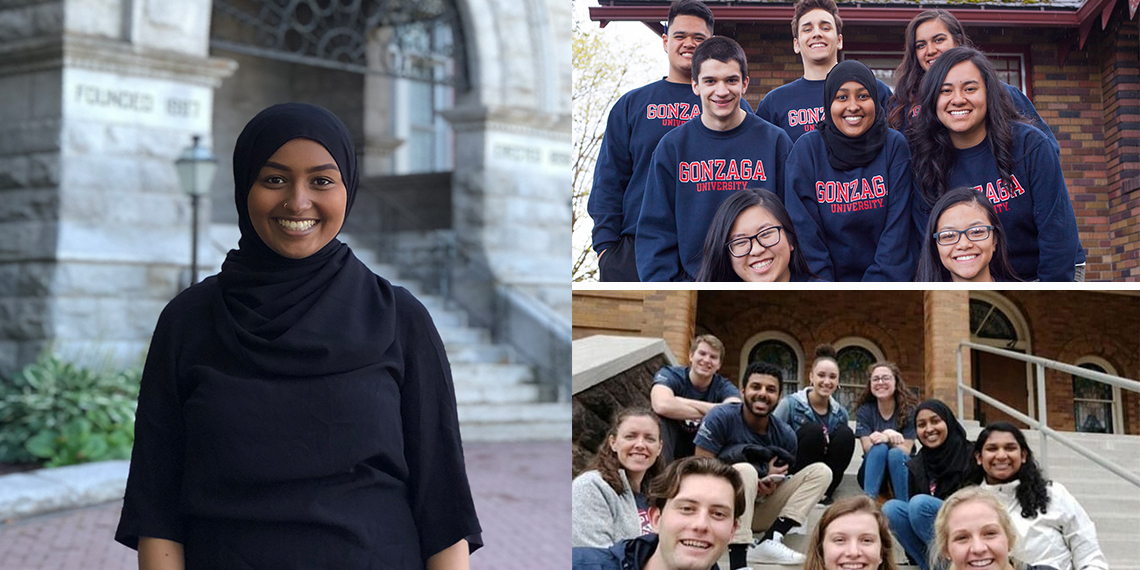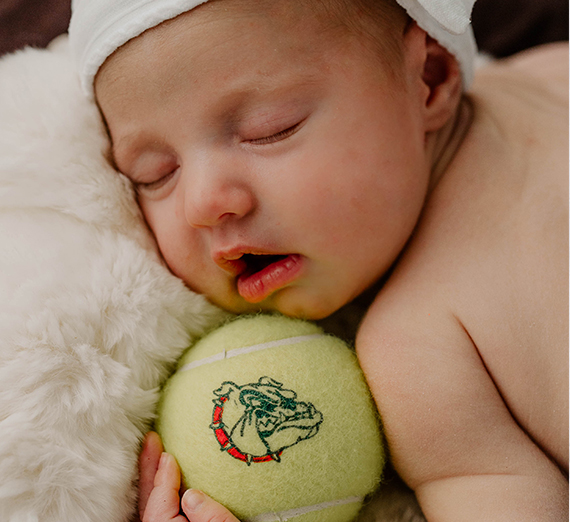Hawa Elias: Meeting and Making Long-term Goals
Zag Grads 2019

Hawa Elias: On Meaningful Work with a Long-term Impact
SPOKANE, Wash. — Hawa Elias (’19), from and returning to Federal Way, Washington, can trace her degree selection and career dreams to a high school economics course. That’s where she realized “how our world works,” she says. “When you think about social justice issues — which is what I really care about — it falls back to our system of economics. There is always that connection.”
What Elias is interested in most is international development work, and the double majors she chose reflect that: “Economics is the foundation for what I need and international relations helps with that global mindset,” she says. She also added a concentration in entrepreneurial leadership.
Given the opportunity, Elias would be interested in working in East Africa. “There's a lot happening there in development — political, economic and social. As part of the diaspora, seeing where those countries are going has been really interesting for me.” Along those lines, her inquiry into Chinese investment in Ethiopia was the topic of a research idea she submitted to the Fulbright Scholars Program, for which she was a finalist.
Considering dual post-baccalaureate degrees in law and public policy, Elias expects to spend this summer preparing for the GRE and the LSAT exams. She purposefully hasn’t applied for jobs or internships in related fields because she believes what's right for her in this moment is to take time off first. “Life takes you where you're supposed to be,” she says. It’s an intentional mindset she has fostered, focused not on achieving a specific position or role, but on being “wherever the work is meaningful and can have a long-term impact.”
No doubt, that approach grew during the many immersion and service-learning experiences Elias had through Gonzaga’s Center for Community Engagement. As a Wolff Fellow, she completed an internship with the Peace and Justice Action League of Spokane, and later interned with the Spokane chapter of the NAACP. “These experiences built off each other and gave me understanding of grassroots organizing and introduced me to non-profit work,” she says.
She was also eager to participate in immersive learning opportunities like leading the alternative spring break trip to Montgomery, Alabama, to explore civil rights from historical and contemporary perspectives, and spending winter breaks at the U.S.-Mexico border to see the many facets that complicate the immigration discussion.
“There’s something about being in those cities that supplements any knowledge you might have had already,” she says.
She was also part of a cohort that traveled to Washington D.C. for the Ignatian Family Teach-In, an experience that places students face-to-face with legislators for discussions on public policy related to a variety of social justice topics. There, she was able to advocate specifically for mass incarceration reform.
“I got to be with thousands of other people who all want the same thing: for our systems to be more just,” says Elias.
Elias has been an active voice for those conversations at Gonzaga as well, participating in the student advisory board for the president, sharing at campus meetings and being a part of efforts to encourage greater diversity, equity and inclusion throughout the University.
“I have seen a lot of change in a lot of good ways over my four years,” she says. “There has been more talking together about the challenges, which definitely helps and brings awareness to the whole campus and not just the smaller group that is more personally impacted. Now, there are students who themselves may not be underrepresented but care and are willing to talk about it.”
Those conversations, she says, are as important as the tangible changes that are taking place, including the new minor in critical race and ethnic studies, and hiring more faculty of color.
She has noted the progress not just in terms of ethnicity and race-related topics but interfaith support as well. “There’s not much of a community for Muslim students,” she notes, “but this spring we had 40 people join us to celebrate the start of Ramadan. That was cool to see; four years of trying, and now — the last week of my senior year — I'm seeing people wanting to be in solidarity with other faiths.”
There is no doubt that some of the improvement came as result of Elias and fellow students in the Act Six scholarship cohort committing four years of leadership, service and being catalysts for change.
You could say Elias has already achieved her goal of doing meaningful work with a lasting impact.
- Academics
- Diversity & Inclusion
- Faith & Mission
- Global Impact
- Service & Community Impact
- College of Arts & Sciences
- School of Business Administration
- Community Action and Service Learning
- Economics
- International Studies
- Hogan Entrepreneurial Leadership Program
- News Center



